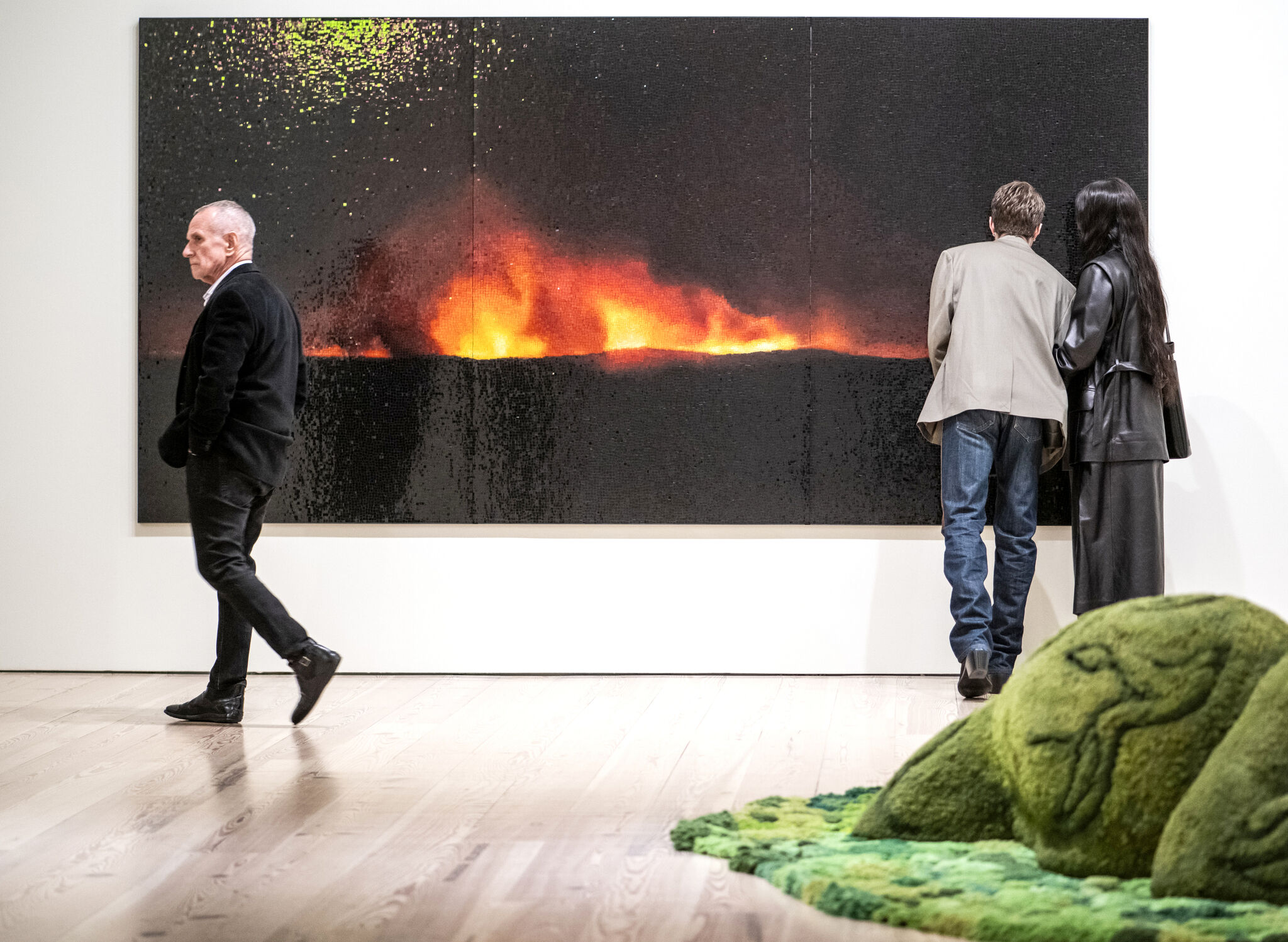Teresita Fernández
1968–
Introduction
Teresita Fernández (born 1968) is a New York-based visual artist best known for her public sculptures and unconventional use of materials. Her work is characterized by a reconsideration of landscape and issues of visibility. Fernández’s practice generates psychological topographies that prompt the subjective reshaping of spatial and historical awareness. Her experiential, large-scale works are often inspired by natural landscapes, investigating the historical, geological, and anthropological realms in flux. Her sculptures present optical illusions and evoke natural phenomena, land formations, and water.
Throughout her career, Fernández has experimented with a diverse array of materials. Ranging from ceramics, glass, and charcoal to gold and graphite, the varied mediums prompt the viewers to take a closer look at each work to contemplate the materialities. To Fernández, materials—at times found subterraneously and are physical remnants of a place—are a testament to the historical past and tangible facts. Fernández refers to her works as “stacked landscapes,” alluding to the process of layering meanings and materials to her sculptural plane. In this process, Fernández’s landscape sculptures delve into complex themes of self-perception, colonialism, and historical violence associated with the environment and body.
She is a recipient of a Guggenheim Fellowship (2003), and the John D. and Catherine T. MacArthur Foundation "Genius Grant" (2005). In 2011, she served as a presidential appointee to Barack Obama's U.S. Commission of Fine Arts, distinguishing her as the first Latina to serve in that role.
Wikidata identifier
Q13560765
Information from Wikipedia, made available under the Creative Commons Attribution-ShareAlike License . Accessed February 21, 2026.
Country of birth
United States
Roles
Artist, installation artist, photographer
ULAN identifier
500274766
Names
Teresita Fernández, Teresita Fernßndez
Information from the Getty Research Institute's Union List of Artist Names ® (ULAN), made available under the ODC Attribution License. Accessed February 21, 2026.

